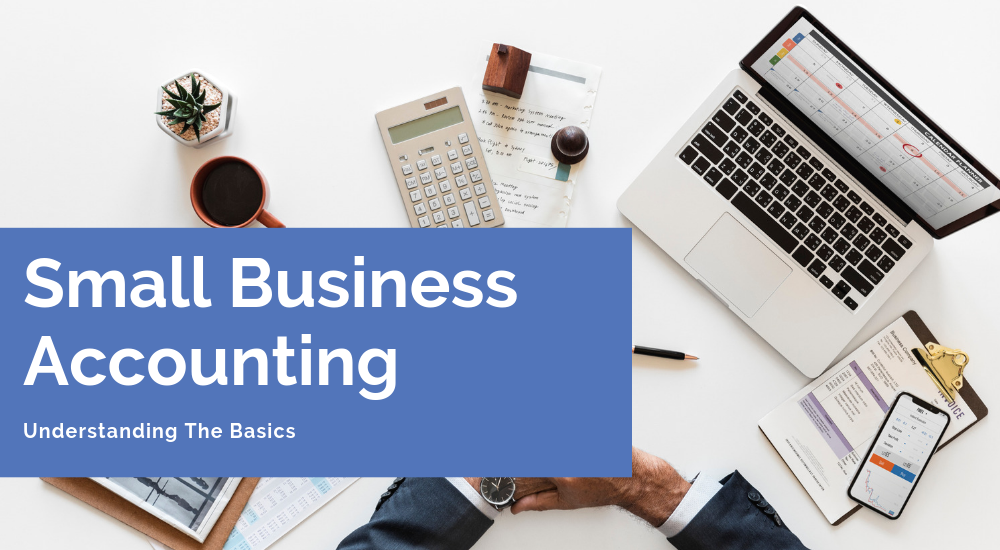
How To Do Accounts For Small Businesses
It can be easy to dive in and start a business that you’ve had the dream to do so for so long and now we’re into a new year it’s a great opportunity to make that dream a reality. But jumping all in means that you still have to abide by the responsibilities that come with running a successful business!
Getting financial advice is always a great place to start if you have no business or financial background and most accountants are happy to help point you in the right direction and ensure that your business is set up in the correct way. But if you’re happy to go it alone, we have some tips to ensure that your business accounting runs smoothly and you have the right guidance to get started.
Understand the financials
You may not have a financial background, or even enjoy numbers, but you need to learn the basics and understand the financials to running a business. You could even enrol in an evening course on basic bookkeeping to give you a heads up in the basics. Our advice is right from the beginning keep records, however basic these may be, get into a habit of recording every action and every spend. Whether this be on an excel document or an online accounting platform, but somewhere you can access on a regular basis and update with each action.
Set up correctly
Again, at the beginning of starting your business, get the foundations right. Register your business with HMRC or your company with Companies House. Set up a business bank account and start your bookkeeping records. This is required by law, so start on the right track. Kara Accountants can help in the initial stages of setting up a business so at least you know you’ve started correctly.
Get organised
Try not to get into bad habits – this means staying on top of your financials and keeping records and books up to date at all times. When things slip, mistakes are made, and businesses get into financial difficulty that can be hard to pull back from. Ensure you’ve got the right tools to be productive and efficient. If you’re running more than one business, keep bank accounts and records separate giving you control over everything that takes place within your businesses.
Think about the tax
Make sure that money is put aside for tax purposes…
Self-assessment income tax: You may fall into the brackets of self-assessments and if this is the case you will need to fill out and submit an annual tax form that declares all your earnings for that tax year. At the end of that period you will be required to pay your income tax and national insurance.
Corporation Tax: If you’ve set up as a company (rather than sole trader or self-employed), you’ll be required to pay corporation tax which all UK companies pay and is charged at 19% on all profits. This must be paid within nine months of the business accounting period.
Understand VAT for your business
Irrespective of your business structure, all business who have an annual turnover or over £85,000 must register for VAT. The current rate for VAT is 20% which means that you must add on 20% to all sales invoices, and then keep this amount separate from what your customers pay you.
You will then be able to reclaim VAT back on any purchases and expenses you have made from HMRC on a quarterly basis.
Standard VAT.
Whether your business is above or below the £85,000 threshold, any business wanting to be VAT registered, can apply to the scheme. VAT is calculated by using the date the invoice for sales or purchase was created. The benefit to this is that you can reclaim VAT on purchases made whether your supplier invoices have been paid or not.
Cash Accounting VAT
This option is available to businesses who have a turnover of under £1,350,000, the difference being that VAT can not be reclaimed until an invoice as been paid. This means that you will not have to pay VAT on any sales that you’ve not yet received payment for. But means that you cannot claim VAT until you’ve paid your invoices.
Flat Rate VAT Scheme
This is most popular with sole traders, small businesses and freelancers who make occasional low cost purchases. The difference of this option is that you cannot claim VAT on purchases (apart from a few exceptions). VAT is still charged at the usual rate of 20% of an invoice value but the VAT rate is paid to HMRC at a lower rate, which will leave a difference that is an extra profit for the business.
A reason to go down this route would be to show that you are not a small business to larger suppliers. If you do not charge VAT, it is evident that you are a small business but adding in VAT gives the assumption of more.
Setting up a business is more complicated that many assume and hiring an accountant to take care of the everyday bookkeeping and accounting structure can ease workloads for many. Here at Kara Accountants we have over 20 years of working with local businesses, providing an accounting service that allows them to run their business without the added pressure of having to manage their accountants in-house. Whether you require just bookkeeping, or payroll or you’re looking to expand and need forecasts and budget plans, we can help! Get in touch and start a conversation with us today.

This Post Has 0 Comments